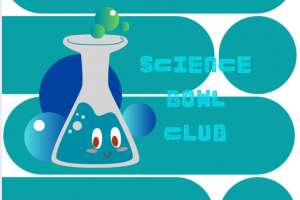By Sicheng Zhou (G11, 2024)
Although consensus sometimes can be helpful for researchers to avoid spending too much time on examining the existing sciences, people can use scientific theory as references while questioning their truthfulness. Because scientific consensus isn’t equal to the truth, they can easily become tools for
politics or economics, and they are in nature opposed to the essence of science-the rigorous process of examination and people’s independent thinking, blindly trusting scientific consensus disadvantages human society after all.
First, I think the consensus among scientists is not necessarily correct.
For example, geocentrism, the idea that earth occupies the central position of the world system, was overturned by heliocentrism, the theory that earth orbits the sun. Another example is the aether theory, which believes the existence of a space-filling substance as a transmission medium for the propagation of electromagnetic or gravitational forces, is overthrown by relativity. When theories are overthrown, there are great revolutions happening. Heliocentrism dramatically altered the scientific perspective of how we view our world, while relativity improved the science of elementary particles and their fundamental reactions. Therefore, no matter how long a consensus has been held, and how obviously true it seems, the consensus is not necessarily correct.
Science requires humility.
However, consensus makes science arrogant. When people make scientific inquiries, they must find evidence to prove every result. They must make sure the scientific methods they use in investigations and experiments are perfect. However, a scientific consensus itself is an unsupported assumption which assumes things without evidence. The only evidence that a consensus has is that it is a consensus believed by many people. Therefore, the nature of a consensus is itself contradicting the spirit of science.
Sciences are easily affected by external influences, like politics and economics.
For example, if a political figure wants to persuade people that his policies are correct, he needs scientific support in medicine. He forces a group of famous scientists to prove that certain diseases are not very disastrous. The scientists do find evidence, but they may not be the sufficient support for the policies. However, under political pressure, the scientists publish a report about a made-up theory. Given the reputation of the scientists, people are easily convinced by the truth of the theory. If other researchers trust that consensus, there is no chance that the theory will be furtherly tested. For example, Soviet pseudo-scientist Trofim Lysenko insisted upon Lamarckism, which states that offspring inherit acquired traits from their parents. Although this belief was challenged by many scientists, because Lysenko’s interpreted it as favoring the ideologies of Soviet Socialism, the Soviet persecuted the scientists holding the true theory and Lysenko’s theory became the mainstream doctrine in the Soviet Union. As a consequence, the Soviet Union’s genetics science fell behind the world by two generations.
Economics plays the same role with politics.
Given huge incentives, scientists would rather find partial evidence to support the healthiness of a food product or the effectiveness of a drug. Thus, scientific consensus can be fabricated under the influence of politics and economics, which will lead to the stagnation of scientific development.
Trusting scientific consensus will make researchers think in the box, not outside it, where most great discoveries are made. It stops researchers from questioning existing scientific theories. If a consensus is accepted by the scientific community, then researchers can grab it and follow it blindly in one’s
research without understanding its meaning. Scientific consensus limits the independent thinking of researchers, which is the only way to update our biased views. In fact, humans’ understanding of the world keeps changing.
What if science changes a lot after a hundred years?
Won’t people after a hundred years view us stupid for holding wrong scientific consensus? Ultimately, science is a human activity, and humans are not perfect. Humans make mistakes inevitably, so we shouldn’t assume science is perfect.
Therefore, we shouldn’t believe in scientific consensus.






